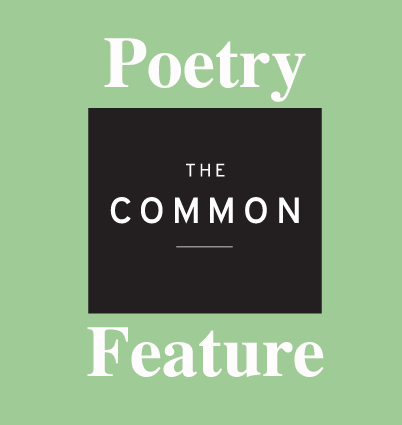This month we’re pleased to bring you selections from Playlist, David Lehman’s new book-length poem forthcoming from University of Pittsburgh Press in April.
Contents:
11/20/17
11/29/17
12/11/17 (Mahler’s Third)
12/12/17
12/16/18
1/8/18
1/9/18
11/ 20 / 17
Dear Archie, today
I drove past 606 Hanshaw Road
where you haven’t lived
since 1993, and where
you had green shutters
the current occupants
have maroon ones. Yours
were better. You left us
in February 2001, a week after
you turned seventy-five.
I thought of your coil
of tape for the turn
of the year while I was driving
and listening to the radio
and deciding I would write
this poem to you, old friend,
now that I’m the age you were
when we edited a book together
and you were so much older then
than I. If you were here you
would ask me what about
the radio enchants me so much?
Its randomness, I would say.
Someone else is choosing
the order, the sequence
which may never cohere into sense,
but the day is like that,
it gives you what it has
and lets you arrange it
and sometimes you luck into
Sinatra singing “The Song Is You”
arranged by Billy May in 1958
and you understand that, Archie,
you remember the phone call
when I sang “it seems to me I’ve heard
that song before” and you sang
back “it’s from an old familiar score”
you knew all the words
and reminded me that
you didn’t have a radio in your Toyota (which
I can still see in your driveway) but
you didn’t need a radio,
because you had
a very entertaining mind.
…
11 / 29 / 17
I’m listening to Eric Dolphy without understanding a word
there are no words but I know what you mean
on the drive back to Hamilton College
after visiting Archie for the first time
in Goldwin Smith Hall in 1976 I brought my hardcover copy
of Diversification she signed it and took me
to Epoch headquarters we took a walk
around the Cornell arts quad he showed me
the one building on campus he liked (was it Barnes Hall?)
because it “has some diversity to go with its unity”
he complained of bad health bad teeth bad skin
well, I said, you look good
well, he said, I fuck a lot
…
12 / 11/ 17
Mahler’s Third
You can tell that the guy
who wrote “I’ll Be Seeing You”
(in all the old familiar places)
was listening to the langsam last movement
of Mahler’s third symphony
at the time but in a less
exalted though equally schmaltzy mood
Just as you can be sure that Mahler had
Nietzsche on the brain
in the fourth movement
when the alto asks the deep midnight
to speak and it does it says the world’s pain
is deeper than daytime can guess
but pain passes and joy seeks eternity
as do I when I wave my baton
…
12/ 12/ 17
Somewhere some summer a few decades ago,
Mahler’s first symphony, “the Titan,”
is playing and melodies familiar from his songs
are turning up with so much sturm und drang no wonder
Lenny loved conducting him,
“Frere Jacques” as a funeral march in D minor
dazzling, a double-bass solo no less,
and as for the agitated end, Mahler
storms the heavens “with an apotheosis of D Major”
but only after staring at the abyss and having a good long cry
…
12 / 16 / 18
for Lew Saul
Perfection: Mozart’s Piano Concerto no. 21
Delight: Beethoven’s Sixth (“the Pastoral”)
…
1 / 8 / 17
There are two things all investors need to know
Don’t sell your winners
And
It’s always a good time to take some money off the table
Now how you implement these contradictory adages is anyone’s guess
But this I know
Jazz is the music of the stock market
As it zigs and zags, from “Dearly Beloved” (Sonny Rollins),
To “September Song” (Gary Burton),
“Blue Rondo a la Turk (Chris Brubeck),
“Sermonette” (Lambert, Hendricks, and Ross) and
“Honeysuckle Rose” (Ella Fitzgerald)
All on my playlist for today
A Facebook friend asks if I have one piece of advice and only one
To give a young writer, what would it be?
And I say
“Play Count Basie, ‘April in Paris,’ and write”
…
1 / 9 / 18
Lew Saul reads my two-line poem for him
(See December 15) and adds
“Le Sacre du Printempsfor air-conducting
on a perfect breezy spring day in Paris
47 years ago” in my room,
where he also played recordings of
Tchaikovsky’s Fifth, Beethoven’s Grosse Fugue,
and Frank Zappa at the Fillmore East, 1971.
Bravo, Lew. And here’s a piece by
Eduard Toldra, “Nocturno,” which I don’t know,
do you? It seems to be a prelude
to Tchaikovsky’s Piano Trio in A minor
which itself seems to be a prelude
in the sense Wordsworth gave the word.
David Lehman is the editor of The Oxford Book of American Poetry and Great American Prose Poems. He is also the general editor of the annual The Best American Poetry, which he initiated in 1988. His recent books of poetry include Poems in the Manner Of and New and Selected Poems. He has authored eight nonfiction books, including The State of the Art: A Chronicle of American Poetry, 1988-2014. Lehman has received a Guggenheim Fellowship and an award in literature from the American Academy of Arts and Letters.





